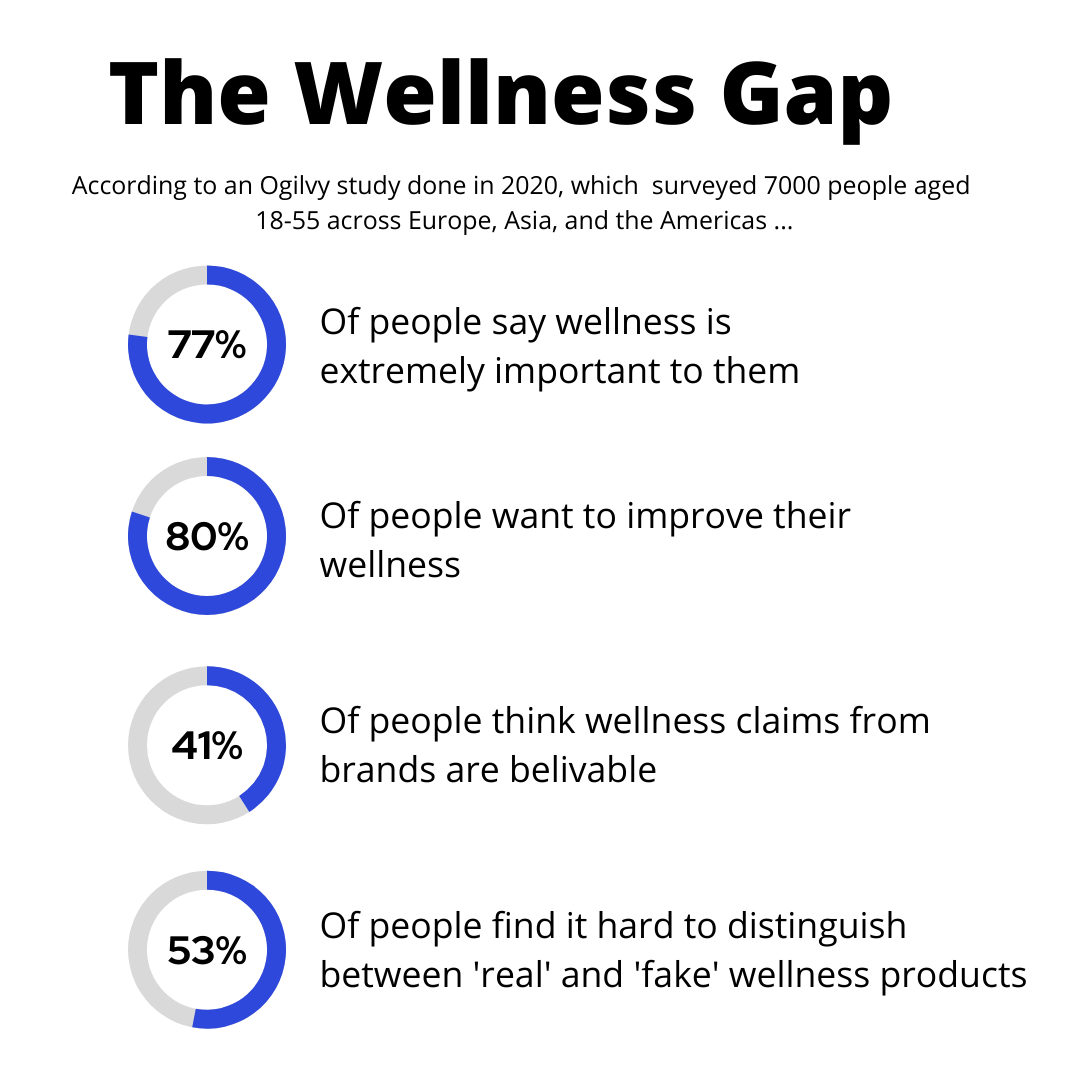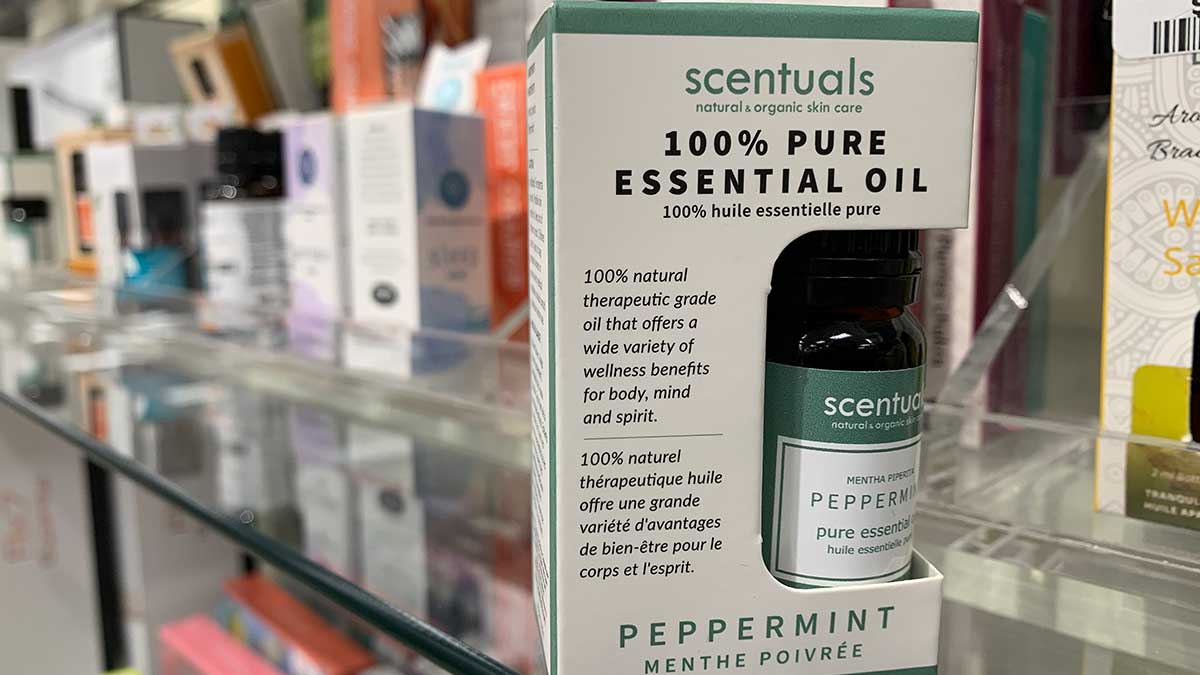Canadians are seeking ways to improve their health, especially during the pandemic, and one industry has profited from selling products that promise to improve ‘wellness.’
The wellness industry includes such things as personal care, healthy eating, fitness, beauty and self-improvement. These sectors combine to make up the global wellness economy worth about $4.5 trillion.
Some products sold by wellness companies include oils for improving symptoms of anxiety, depression insomnia and anger and lotions to help improve sleep.
The claims made for these products concern health experts.
“None of it is based on science. It’s a business model,” said Dr. Imogen Coe, a scientist, activist and professor in the faculty of science at Ryerson University. “It’s a whole system that is designed to extract money out of people, particularly vulnerable people.”
“[Products] that talk about balancing hormones, detoxifying … promising very quick fixes — those are all really red flags to me,” Coe said.
Dr. Stan Kutcher, a Canadian Senator and mental health-expert who spent most of his career in psychiatry, says the wellness industry is based on “mysticism” and pre-scientific notions about what makes us healthy. He says there are no shortcuts to health.
“Buying a detox is not going to make you slender or improve your kidneys. [You can’t] buy something to improve your immune system, there is no such thing,” Kutcher said. “If you want to boost your immune system, get vaccinated.”
“Buying a detox is not going to make you slender or improve your kidneys. [You can’t] buy something to improve your immune system, there is no such thing,”
Dr. Stan Kutcher, Canadian senator
Tim Caulfield, the Canada Research Chair in Health Law and Policy and a professor at the University of Alberta, says some products may try to appeal to people using a method he calls “science-sploitation.” This happens when companies use language to make it sound like their products are based in science.
“They use science-y language to back up their claims but there is no real science there,” Caulfield said. “It’s a bit paradoxical because they reject science in so many ways, but they still want the veneer of credibility that science gives them.”
For example, a company might try to sell a face cream marketed as the result of “stem cell research,” when it has no scientific basis, said Caulfield, adding that companies also often use vague language to escape regulatory oversight that “imply a health benefit but avoid a specific claim.”
Dr. Coe’s concern with the wellness industry is its tendency to target women seeking solutions to real health problems.
“[The wellness industry might] take advantage of people’s vulnerabilities. It takes advantage of people’s very intense desire for quick answers to complex, difficult problems,” Coe said. “I think that is very human. It plays on our human-ness.”
Studies show that there is a tendency for health-care providers to disregard or invalidate the concerns of female patients. Women who fall through the cracks of the health-care system are more likely to turn to the wellness industry for answers.
Women and healthcare
One University of Maryland study found that women are “more likely to have their reports of pain discounted as ‘emotional’ or ‘psychogenic’ and therefore considered ‘not real.’” The study also found that pain experienced by women is more likely to be dismissed and not treated as seriously as pain experienced by male patients.
Coe says that if we look critically at the history of medicine and science, women haven’t always been well-served. There is a gap in understanding, attention, levels of training, research and understanding of the female body.
“When there are gaps, other systems can come in to fill those gaps,” Coe said. “There’s an opportunity there to target women because they feel like they’re not being taken seriously, and they are not being listened to.”
Caulfield agrees, adding that this opens the door to the influence of the wellness industry.
“They leverage the frustration that people have with conventional health care,” Caulfield said. “They’re exploiting this problem in order to push alternative therapies and profit.”
Coe says that we must “be aware of the societal structure that drives people towards some of these products.”
Kutcher says that most of the items sold in this industry have little to no effect at all — but harm can be done if consumers are investing in wellness products instead of doing things that could actually improve their health. Kutcher also worries that people may not be seeking quality medical advice. This is a concern Coe shares.
“In many cases, you never know what you’re getting and in other cases you may be consuming harmful things,” Coe said. “In all of those cases, you’re spending money, wasting money, that could go to more important things to you and your family.”
Marketing
Caulfield, who is also the host of the Netflix series, A User’s Guide to Cheating Death, says that the wellness industry also relies on intense marketing tactics to succeed.
“They play on fears particularly relevant to women. They fearmonger about chemicals and the pharmaceutical industry and that marketing works,” he said.
Coe agrees that wellness marketing often leads women to believe that they need certain products to fulfill societal expectations and ideals about how women are supposed to look and feel.
“They’re sold in a way and designed in a way to appeal to women and they also feed into those patriarchal structures and systems that women are judged by,” Coe said. “There’s a lot of very gendered patriarchal overtones to the wellness industry that reinforces those things.”
“I get really cross with things that are specifically targeting women around things like balancing your hormones, detoxes and cleanses, and fat burning,” Coe said. “They’re all things that tell women there’s something wrong with them when there is nothing wrong.”
Wellness marketing encourages women to engage in acts of ‘self care’ to overcome emotional and physical challenges and tells them that by investing in these products, they are investing in themselves.
Kutcher says self care is important by healthy eating, exercise and getting enough sleep.
“Feeling good became a neo-liberal, capitalist money-making machine when people realized they could sell ‘feeling good’… under the concept of wellness,” he said.
“It never ends because you always want to feel better than you’re feeling now. That is why this wellness industry is so huge,” Kutcher said.
While wellness products often have no measurable or tangible effect on health, some consumers simply enjoy using the product.

“If people enjoy these products, like crystals and oils, and they enjoy the environment it comes from, I get that,” Caulfield said. “But people need to understand what the evidence says and be skeptical of the claims that are associated with those products.”
Coe agrees that these products should be consumed very cautiously.
“There may be nothing wrong with just buying stuff that makes you feel good because it comes in a beautiful package and is a nice feeling face cream,” Coe said.
“At best it’s not going to make a difference, but at the worst, there’s a potential it may be harmful.”
For example, wellness products may be dangerous if they are being used to cope with a real illness that needs professional treatment.
“Products for [stress and anxiety] might be things that make you feel better or are part of a routine or a ritual that you use to deal with those things,” Caulfield said. “But the problem is when they are marketed in a way that they represent a substitute for some kind of treatment that may be more effective.”
Caulfield is referring to a wellness product that may be marketed as an “all-natural anti-depressant” or “nature’s anti-depressant,” which suggest that consumers should not use pharmaceutical products developed within the context of regulatory bodies and scientific evidence.
“[The marketing] is very misleading and may actually cause the individual to avoid getting the professional help that they need,” Caulfield says.
The importance of science literacy
Experts say science literacy is important when it comes to discerning what actually improves your health and what products are based on scientific evidence.
Kutcher has three tips for those considering a purchase of a product:
- If it sounds too good to be true, it is;
- If it is being sold to you by an influencer or a celebrity, the product is probably not based in science;
- And just because it has the label ‘Dr.’ on it, that doesn’t mean it is overseen by a medical professional.
Coe says think critically about how a product is being marketed.
“[We should be] teaching people to be skeptical of the sales pitch and empowering people to be more scientifically literate,” she said. “Slow down … be skeptical and make an informed decision.”
This would be aided by better teaching of science literacy in schools, Kutcher says.
“I would like to see our education system stepping up to the plate and saying, ‘let’s promote health literacy and science literacy,’ and not just for the kids but for our educators as well.”
Coe emphasizes the importance of addressing systemic and structural issues that have led to the success of the wellness industry, rather than pointing fingers at consumers.
“The science community needs to pay attention to some condescending messages toward women such as ‘how could be so stupid to believe this stuff?’ That’s not helpful when you think about the history of targeting women and the history of women not being as well-served by medicine as they could be.”




